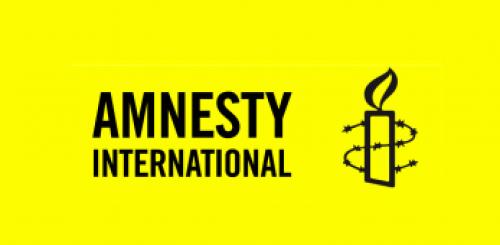QUÉBEC and OTTAWA, June 10, 2018 – The Ligue des droits et libertés (LDL) and Amnesty International Canada (English-speaking and Francophone branches) concluded an independent monitoring mission today that focused on the respect of civil liberties in the context of the G7 summit. Although the organizations were relieved to note that there were no serious injuries, an impressive display of police force—both before and during the G7 summit and as much in La Malbaie as in Québec—contributed to creating a truly fearful atmosphere for anyone who wished to express themselves openly and peacefully during the summit.
“Should a climate of fear and intimidation that hinders freedom of expression be considered a successful public security operation?” asked Geneviève Paul, Director General of Amnistie internationale Canada francophone.
Over 40 observers with various in-depth specialties were sent to the regions of Québec, La Malbaie and Saguenay for three days. The two organizations warmly thanked the observers for their professionalism and availability and also noted the positive reception they received from the population as well as the frequent appreciation expressed by protestors who said they found the mission’s presence on the ground reassuring. A similar sentiment was noted among detained individuals, with whom the observation mission spoke at the Orsainville detention centre.
Throughout the mission, the coordination team was able to count on the responsiveness of the designated liaison officers in the Sûreté du Québec and at the Orsainville jail. The requests from the coordination team were relayed, and those involving the Orsainville jail were all taken into account.
The preliminary findings revealed that the presence of police officers carrying assault weapons as well as other riot-control weapons was extremely worrying and contributed to an increased feeling of fear in the population and amongst protesters, especially considering that the police force refused to provide the rules of engagement for the use of weapons.
The mission noted several behaviours on the part of members of the police force towards protestors that were deemed unacceptable, ranging from abusive language to intimidating gestures. Observation teams also reported that the police force refused to cooperate with them on a few occasions. The organizations deplored the likely unwarranted use (June 8) of kettling, a police tactic that hinders the right to protest by restricting the freedom of movement for no apparent reason. Additionally, the mission witnessed incidents during which protesters damaged equipment from members of the media. Journalists also reported to us that the police force made gestures that were deemed unacceptable towards the journalists.
Furthermore, the mission witnessed a few snatch arrests (sudden and forceful arrests) for which observers could find no apparent reason. Detained individuals spoke to us about the fear they experienced during the arrest, which they viewed as intimidating, and emphasized that they did not resist in any way during the arrests. Finally, the mission was informed that the people who were arrested for illegal assembly would be detained until Monday because they were considered likely to re-offend. However, according to the information that we have gathered as of now, the protests did not meet any of the conditions required to determine that an assembly is unlawful. The result of this decision prohibited people from protesting in a way that is likely unjustified.
“Instead of encouraging citizen participation in discussing global issues that concern everyone, the G7 summit occurred in an atmosphere of fear,” said Alex Neve, Secretary General of Amnesty International Canada’s English Branch.
“The gross disproportion between the number of protestors and police officers present is alarming,” said Nicole Filion from the Quebec Civil Liberties Union. “Given the circumstances, is it any wonder that several citizens reported that they were afraid to protest?”
The organizations are continuing to gather information and will follow up with authorities on these different points for a report that will be made public shortly. The report will contain a series of recommendations intended for police forces as well as the governments of Quebec and Canada.






















